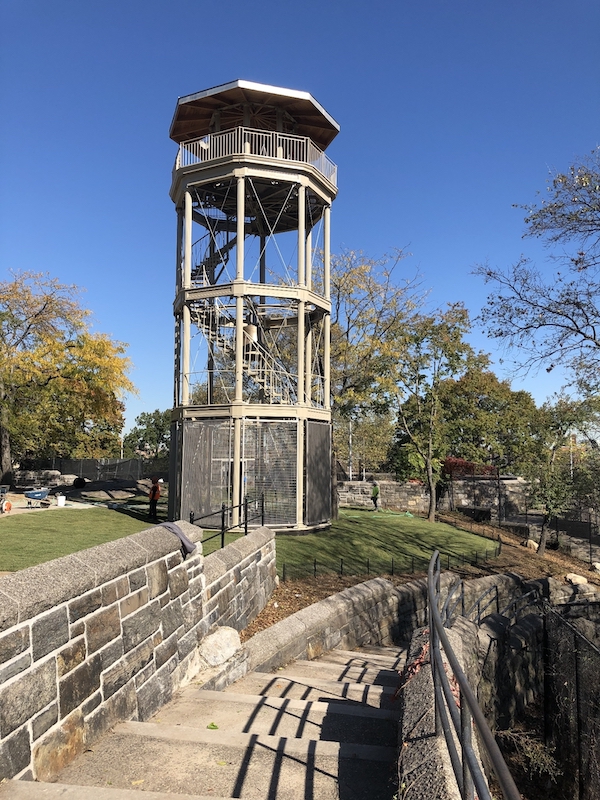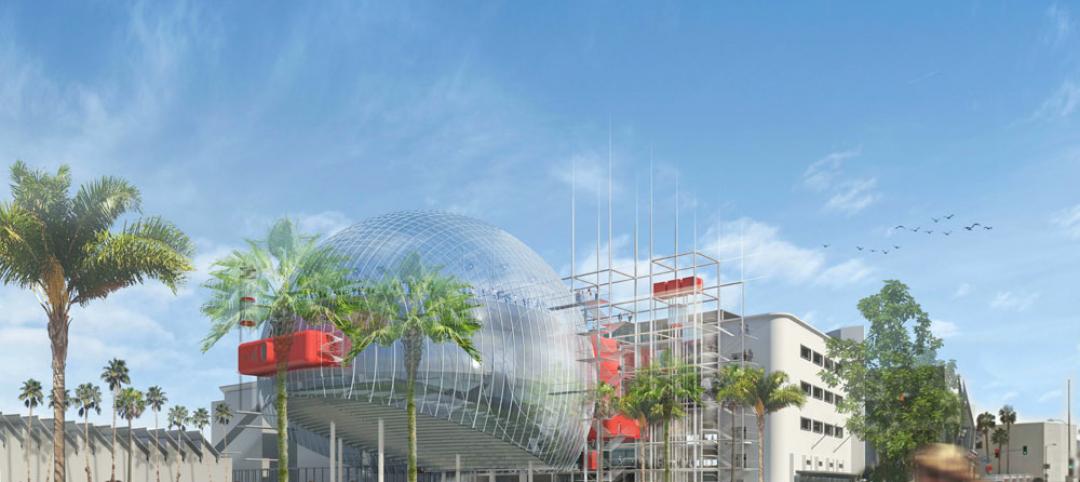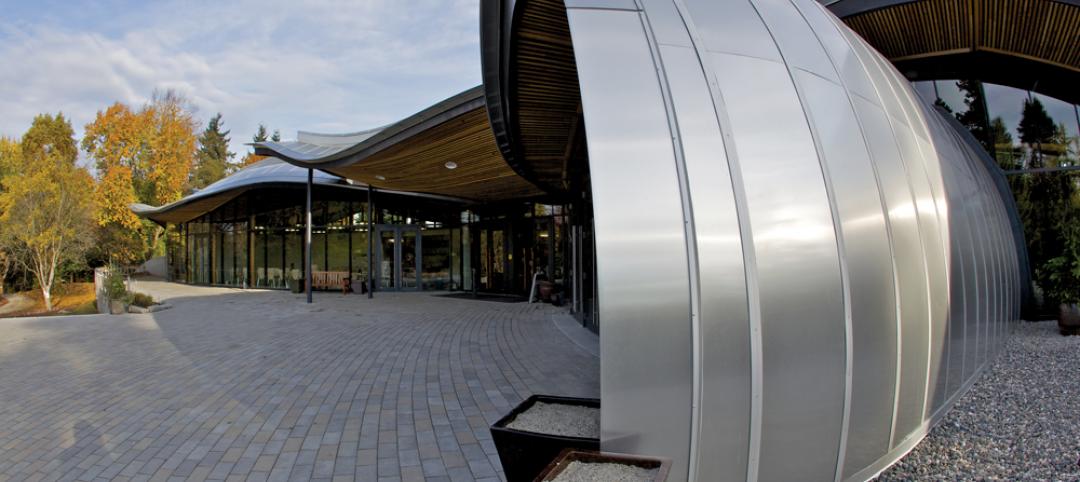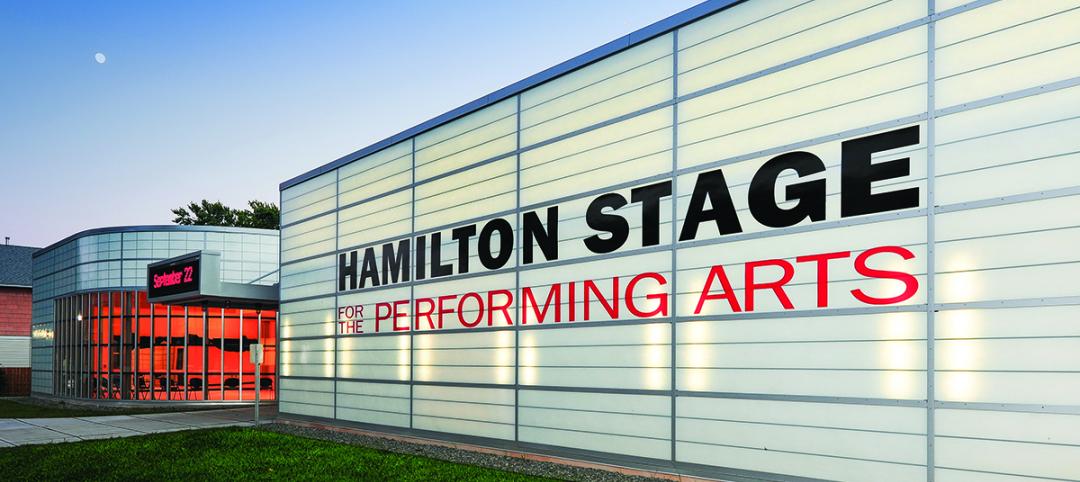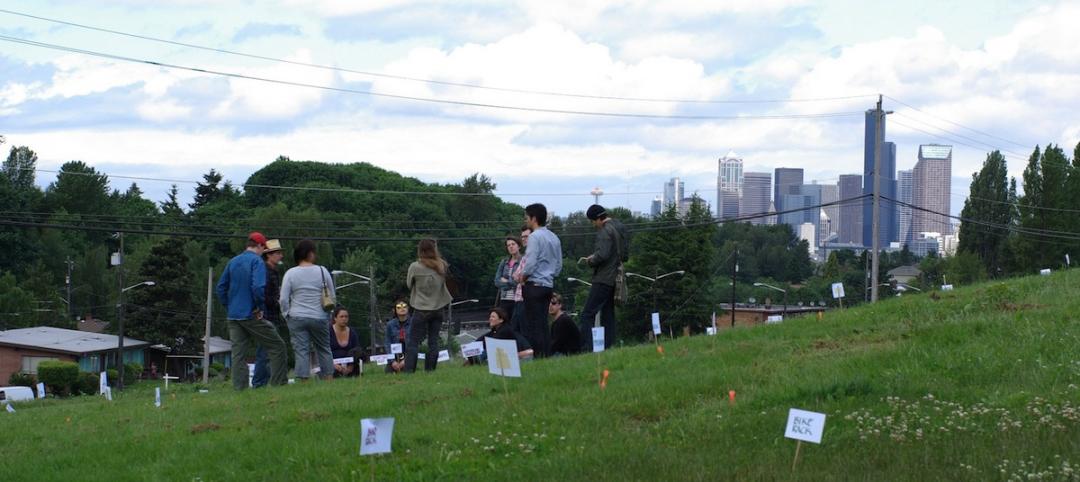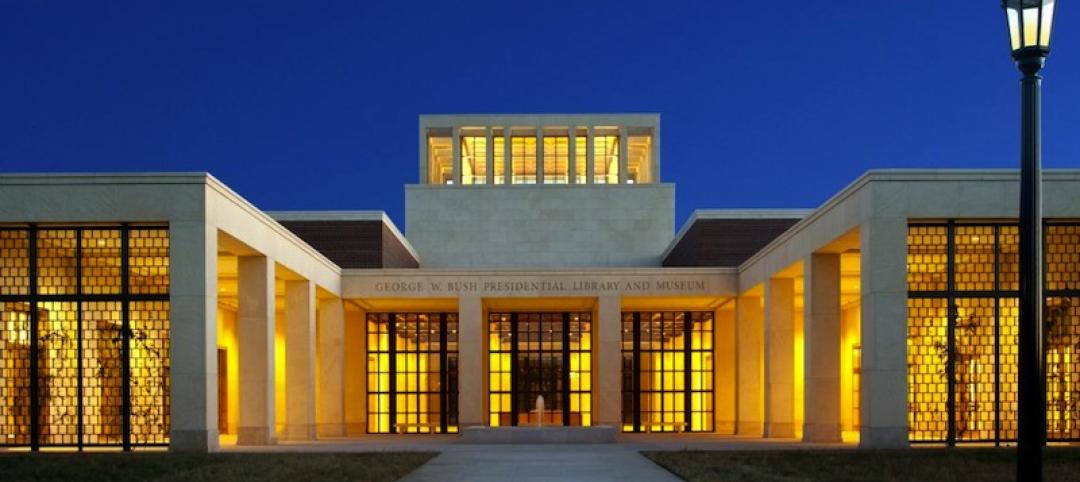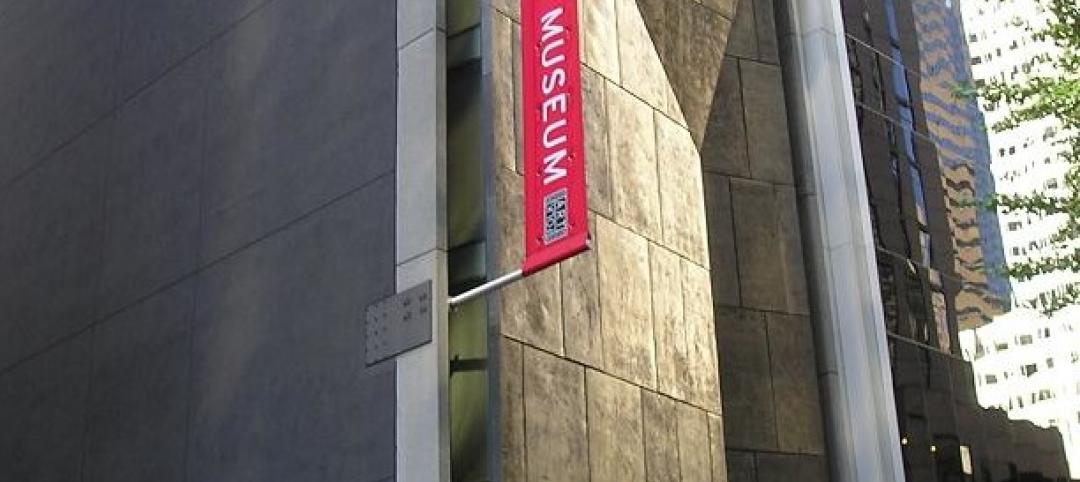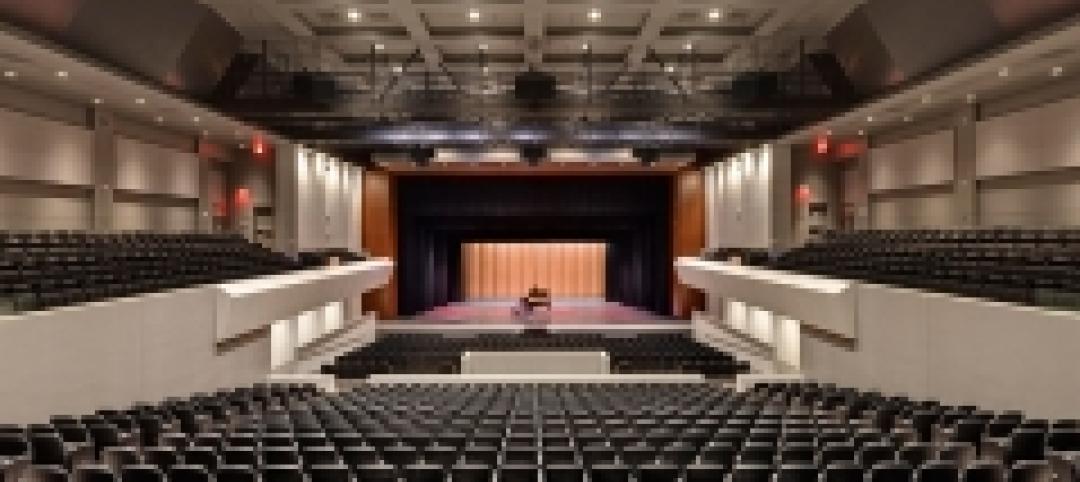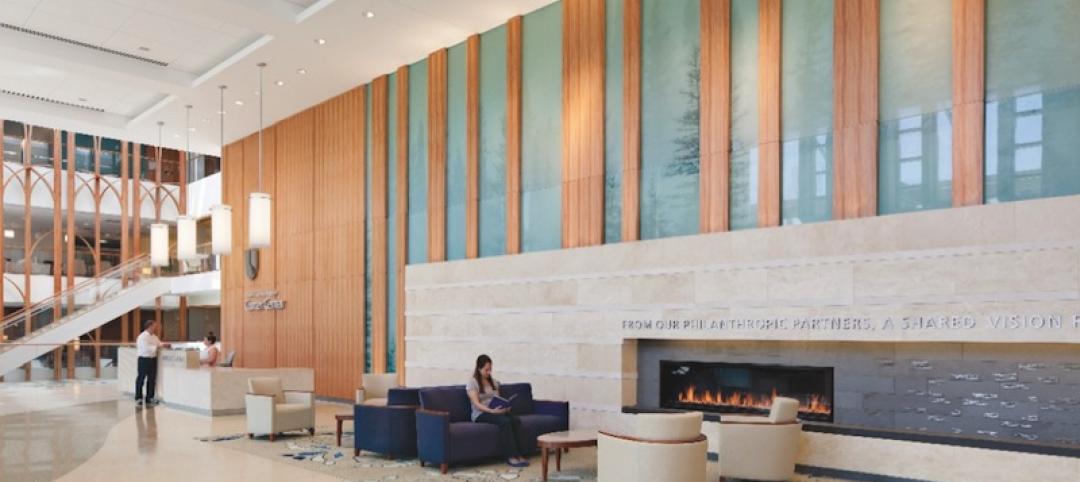In the 1800s, firefighters in New York City watched over their communities perched from cast-iron watchtowers that dotted the metro, and rang bells in those towers to alert nearby fire companies.
Pull boxes for fire alarms rendered the towers obsolete in the 1870s, and over the decades those structures fell into disrepair and near collapse. One of the structures—the Harlem Fire Watchtower, the third such tower in the city, built in 1856 within Mount Morris Park (renamed Marcus Garvey Park in 1973), and deemed a NYC Landmark by the National Register of Historic Places in 1967—has been restored and reconstructed, thanks to the activism of Harlem’s community.
City officials retained the engineering firm Thornton Tomasetti to reconstruct the watchtower. Its restoration design included structural assessment, historical documentation, and a finite element analysis of the cast-iron structure.
Elements of the watchtower’s cast iron structure that analysis deemed too deteriorated for reuse were replicated. The old structure failed under wind load tests, and required interventions to satisfy structural and historic preservation goals. The reconstruction included a new bracing system. The historic metals were painted the original color, while supplemental elements were stainless steel.
The tower’s 5,000-lb bell, dating back from 1865, underwent a non-destructive testing that confirmed casting anomalies and micro cracking. The bell was shipped to the Netherlands for brazing to reconstitute its structure.
Using historic photos as its guide, Thornton Tomasetti recreated or restored several of the watchtower’s lost features, such as its copper sheet roof. Landscaping around the tower was modified with ADA-compliant access. Ground-level security screens, a modern twist, nevertheless recall the original enclosure. Lighting protection, concealed within the structure, is incorporated into the roof filial.
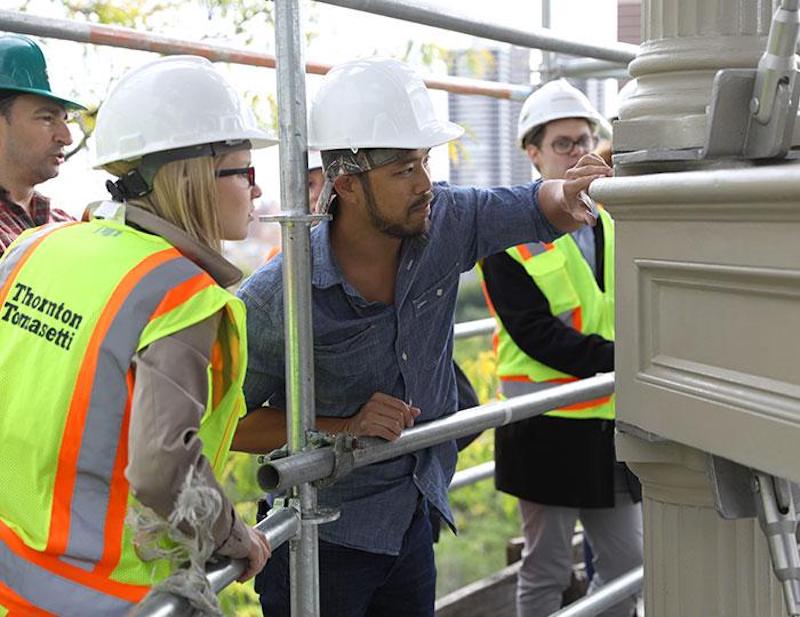
Engineers from Thornton Tomasetti inspect a portion of the Harlem Fire Watchtower.
The city’s Landmarks Preservation Commission approved the reconstruction of the four-story octagonal watchtower on July 14, 2015. The project’s funding was $7,970,000, and reconstruction began in July 2017. Its Reconstruction Team included the NYC Department of Parks & Recreation (which owns and operates the park), Mueser Rutledge (engineering consultant), Nicholson and Galloway (copper roofing), Allen Architectural Metals (cast iron structure), and Verdin Bell Company.
The reinstalled watchtower was revealed at a ceremony on October 26 at the Acropolis, which overlooks the park. The Marcus Garvey Park Alliance/Public Arts Initiative has requested city funding to install lights and cameras on the Acropolis.
Related Stories
| Apr 17, 2013
First look: Renzo Piano's glass-domed motion pictures museum
The Academy of Motion Picture Arts and Sciences last week released preliminary plans for its $300 million Academy of Motion Picture Arts and Sciences museum in Los Angeles, designed by Renzo Piano and local architect Zoltan Pali.
| Apr 16, 2013
5 projects that profited from insulated metal panels
From an orchid-shaped visitor center to California’s largest public works project, each of these projects benefited from IMP technology.
| Apr 12, 2013
Nation's first 'food forest' planned in Seattle
Seattle's Beacon Food Forest project is transforming a seven-acre lot in the city’s Beacon Hill neighborhood into a self-sustaining, edible public park.
| Apr 12, 2013
Chicago rail conversion puts local twist on High Line strategy
Plans are moving forward to convert an unused, century-old Chicago rail artery to a 2.7 mile, 13 acre recreational facility and transit corridor.
| Apr 11, 2013
George W. Bush Presidential Center achieves LEED Platinum certification
The George W. Bush Presidential Center announced today it has earned Platinum certification by the U.S. Green Building Council’s Leadership in Energy and Environmental Design program. The Bush Center is the first presidential library to achieve LEED Platinum certification under New Construction.
| Apr 11, 2013
American Folk Art Museum, opened in 2001, to be demolished
Just 12 years old, the museum designed by Tod Williams and Billie Tsien will be taken down to make way for MoMA expansion.
| Apr 5, 2013
Snøhetta design creates groundbreaking high-tech library for NCSU
The new Hunt Library at North Carolina State University, Raleigh, incorporates advanced building features, including a five-story robotic bookBot automatic retrieval system that holds 2 million volumes in reduced space.
| Apr 2, 2013
6 lobby design tips
If you do hotels, schools, student unions, office buildings, performing arts centers, transportation facilities, or any structure with a lobby, here are six principles from healthcare lobby design that make for happier users—and more satisfied owners.


